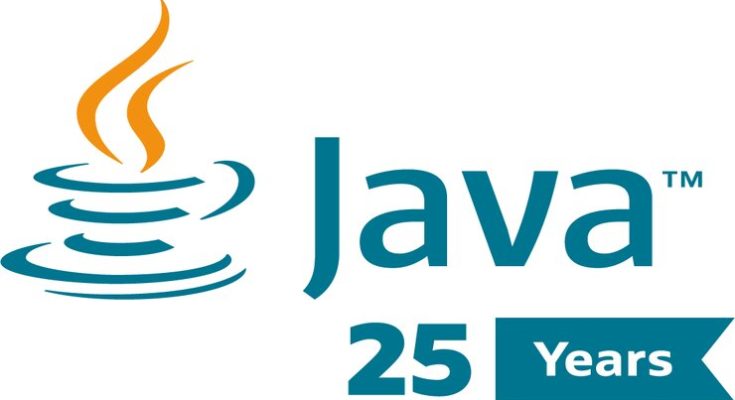It’s been 25 years, since Java, the Object-Oriented Programming language (OOP), has been continuously opening the door towards new possibilities. In the world of programming, Java has helped people a lot in closing the gap between impossible and achievable.
The OOP even went on to get higher registers by competing with its rival languages like Python and Go. Today, it is the heart and mind of every software developer and development process as well. Let’s celebrate the 25th birthday of Java and recall its first launch day, by the Sun Microsystems.
A Brief History of Java
Java, driving off the so-called “Oak” project that started in the year 1991, was adopted by Mr.James Gosling. After quite some time, improving the portability, it earned the tagline “Write once, run everywhere”.
The Java Virtual Machine is compatible with many variants of hardware platforms as well as Operating Systems too. Java got its open-source license towards the ending of the year 2006. The stewardship of Java was transferred to Oracle.
Oracle’s Take Over
Previously, the Sun Microsystems put more pressure on its developers to find a hosting company that will support the Java project. Even when Oracle took over Java, the flow of Java didn’t stop at all. Many different approaches came out in the picture.
Oracle launched the Enterprise version with the help of the Eclipse foundation in the year 2017. But, due to some obvious reasons, it is still continuing the standard version of Java. Within the gap of every six months, the standard version gets its necessary updates.
The OOP Held its Ground
Java still ranks amongst the top three programming languages in the world. In the Index of Tiobe, Redmonk, and PyPI, it has emerged to be one of the most prominent programming languages. In addition to that, Java held its ground for nearly 5 years in the Index of Tiobe. But, now C (Procedure Oriented Programming language) has taken its place.
The Work Ecosystem
Java houses a huge ecosystem for jobs. According to research reports, experts of Oracle have said that about 9 million Java developers are there in the entire world. Some recent analysis stated that there are probably more than 12,000 jobs available where the sole requirement is Java.
Amongst that, roughly, 8000 to 9000 job requirements are on Javascript. On the other hand, more than 7600 jobs are available on Python. With the help of an excellent framework and a large variety of tools, large scale technology giants like IBM, Red Hat, Oracle uses the OOP to develop application servers.
The Major Breakthrough of Java
The big boost of Java came along when developers used it in developing Android. Overnight, a massive amount of developers want to learn Java as they want to code Android applications. It initiated the work ecosystem of Java to grow bigger in size than before. Authorized representatives believe that if they had decided to put Java on an open-source, people wouldn’t be able to use it for Android development today.
Java’s Next Move
All the developers of Java along with the OpenJDK community have kept on forwarding the OOP from time to time. Two months ago, Java and JDK (Java Development Kit) launched its 14th version. The version has the ability to switch between the expressions among the codes. Not only it will simplify and permutate the coding but also continue the consumption of JFR (JDK Flight Recorder) data.
JDK 14 also has the event streaming capability for any live content. Java by Oracle is looking forward to launching its 15th version very soon. The OOP host is all set for the production release in the month of September 2020. As far as knowledge, the 15th version has the exclusive preview sealed classes.
The bunch of class files will play the role of transparent carriers along with immutable data. Java will also include various types of resource footprints, improvement in start-up time. It will fix the previous version’s performance issues by introducing static images.
Experts Point of View
As Java turns 25 years, still the maximum number of experts believe that the OOP is still at its growing stage. And, when compared to the other programming languages like Python, C++, and C, they are much older than Java.
C and C++ are still now taught in schools and colleges as the main concept of programming. Experts also suggest that the concept of Java is in an infinite loop and will never end. Java programmers have a lot to learn about Java in the upcoming years.

